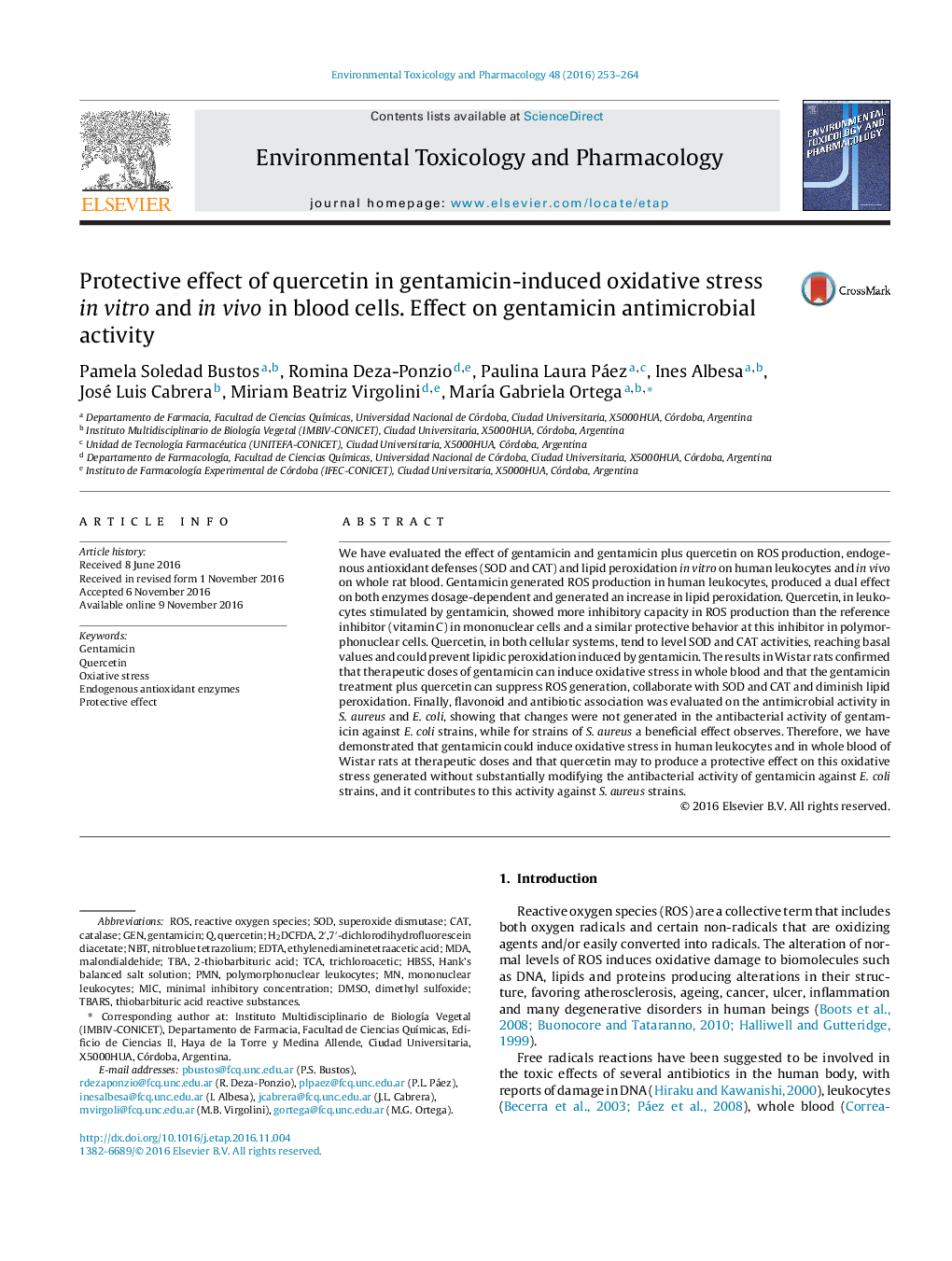| Article ID | Journal | Published Year | Pages | File Type |
|---|---|---|---|---|
| 5559916 | Environmental Toxicology and Pharmacology | 2016 | 12 Pages |
â¢Gentamicin, at therapeutic doses, induces oxidative stress in whole blood cells.â¢Quercetin could produce a protective effect against the toxicity of gentamicin.â¢Quercetin does not change the antibacterial activity of gentamicin against E. coli.â¢Quercetin contributes to antibacterial activity of gentamicin against S. aureus.
We have evaluated the effect of gentamicin and gentamicin plus quercetin on ROS production, endogenous antioxidant defenses (SOD and CAT) and lipid peroxidation in vitro on human leukocytes and in vivo on whole rat blood. Gentamicin generated ROS production in human leukocytes, produced a dual effect on both enzymes dosage-dependent and generated an increase in lipid peroxidation. Quercetin, in leukocytes stimulated by gentamicin, showed more inhibitory capacity in ROS production than the reference inhibitor (vitamin C) in mononuclear cells and a similar protective behavior at this inhibitor in polymorphonuclear cells. Quercetin, in both cellular systems, tend to level SOD and CAT activities, reaching basal values and could prevent lipidic peroxidation induced by gentamicin. The results in Wistar rats confirmed that therapeutic doses of gentamicin can induce oxidative stress in whole blood and that the gentamicin treatment plus quercetin can suppress ROS generation, collaborate with SOD and CAT and diminish lipid peroxidation. Finally, flavonoid and antibiotic association was evaluated on the antimicrobial activity in S. aureus and E. coli, showing that changes were not generated in the antibacterial activity of gentamicin against E. coli strains, while for strains of S. aureus a beneficial effect observes. Therefore, we have demonstrated that gentamicin could induce oxidative stress in human leukocytes and in whole blood of Wistar rats at therapeutic doses and that quercetin may to produce a protective effect on this oxidative stress generated without substantially modifying the antibacterial activity of gentamicin against E. coli strains, and it contributes to this activity against S. aureus strains.
